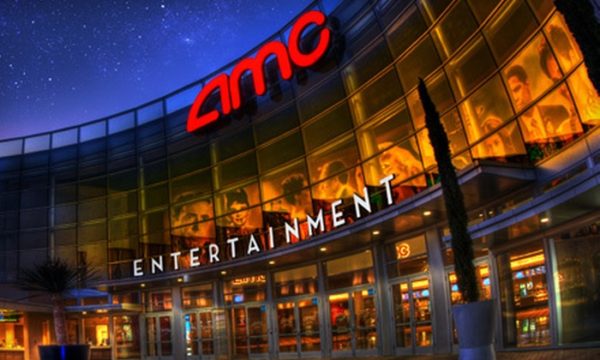AMC Theatres, the world’s largest exhibition circuit, expressed confidence in recovering from what it called the most difficult quarter in its 100-year history by embracing a shortened theatrical exclusivity window.
The circuit reported a $561.2 million loss in its Q2 earnings call with investors, a result of Covid-19 cinema closures worldwide. The steep downturn is in line with results from competing domestic circuits in a three-month period where most U.S. indoor cinemas remained shuttered.
Despite the heavy financial toll from the crisis, AMC’s executive leadership believes the company is uniquely placed in the recovery effort thanks to its recent deal with Universal Pictures. The agreement in question gives Universal the right to shift any of its releases to Premium Video on Demand (PVOD) platforms following a 17-day theatrical exclusivity window in cinemas. While the specific length of each film’s theatrical exclusivity will differ depending on the title, the agreement grants AMC a share of PVOD digital rentals once a title is available for consumers online. Titles will stay in AMC locations even after they are available on PVOD. Other home entertainment windows, such as Electronic Sell Through (EST) and traditional Video on Demand (VOD) channels, would remain unchanged.
“AMC is not afraid of change,” said AMC Theatres CEO Adam Aron in a call with investors. “Instead, we believe that we are forcing that inevitable change to bend in ways that will serve AMC well and benefit AMC shareholders as a result.”
Aron explained the Universal deal in detail, clarifying that not all of the studio’s releases will go to PVOD––and those scheduled to do so would only begin publicizing their PVOD date after their tenth day of theatrical release. This would give all upcoming Universal titles a two weekend period to incorporate and promote theatrical exclusivity slogans into their marketing campaigns. While the current agreement is only applicable in the U.S., Aron admitted AMC will be reviewing the potential of expanding the terms to include select European markets in the coming months. The circuit stated it has engaged additional studios to explore similar agreements to its PVOD deal with Universal.
Aron addressed the industry’s reaction to his company’s embrace of a shortened window by citing a conversation with another studio. “Adam, you’re going to take heat, but with this action AMC just saved exhibition,” said Aron, quoting an unnamed studio executive. “Honestly, we were going to green-light fewer and fewer theatrical movies. Now with an added revenue stream to studios, we’ll be green-lighting more and more theatrical movies instead.”
AMC’s deal with Universal came on the eve of another major shake up to the industry, as Disney revealed plans earlier this week to roll out Mulan as a $29.99 digital purchase available only to Disney+ subscribers. As opposed to Universal’s plans, Disney’s release of Mulan does not involve plans for a domestic theatrical release. Aron said he wasn’t particularly troubled by Disney’s plans with Mulan, despite emphasizing that a theatrical roll out would have benefitted exhibitors and the studio alike.
“Just like AMC is under duress, Disney is under pressure too. At some point they’ve got to monetize their movie product,” he said. “They’ve got a huge slate coming for the balance of 2020. We will benefit mightily from Disney titles in 2020, with or without Mulan, so we fully understand what they did. We would have preferred that they kept the movie as a theatrical movie only, but our biggest reaction overall to the Mulan announcement is how much it reaffirms our wise and smart decision last week to take the risk and sign on to PVOD.”
Specifically, Aron cited the $29.99 price point as consistent with the circuit’s own discussions around PVOD pricing models with Universal. He also emphasized the transactional element of Mulan‘s availability within the Disney+ ecosystem. “Until the Mulan announcement, the Disney+ model was the Netflix model: you pay some dollars a month and you have unlimited content. There was nothing transactional in it. It was hard to figure out how we might share in the Disney+ revenue stream,” he said. “Disney has just created a transactional PVOD release where the consumer has to pay a premium to watch Mulan. That’s a very good thing for us because, if they so chose, they could strike an agreement similar to what we’ve done with Universal, without compromising any of the economics of the basic Disney+ option.”
Currently, AMC Theatres has resumed operations at more than 130 of its overseas sites. The circuit is expecting to have all its international theaters and approximately two-thirds of U.S. locations open by the end of August. As to whether a domestic reopening effort is economically viable under current conditions in the domestic market, AMC believes it is better to reopen as long as locations can operate at 25 percent of pre-Covid attendance volumes. At that rate, the domestic circuit could become cash positive and contribute to overhead and fixed costs such as rent payments. “We are very close to theaters reopening soon in the United States,” stressed Aron in his final statement to investors.



Share this post